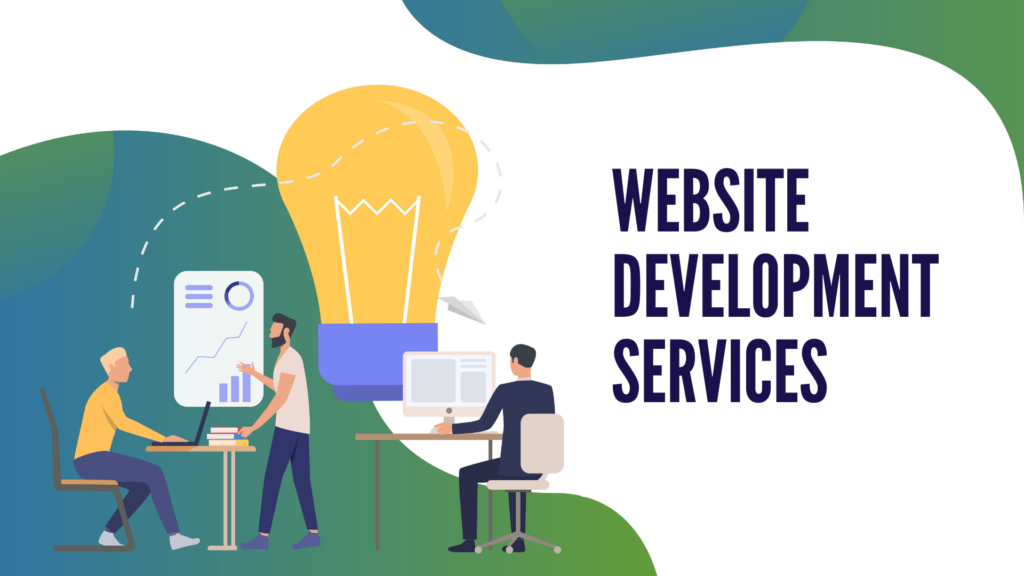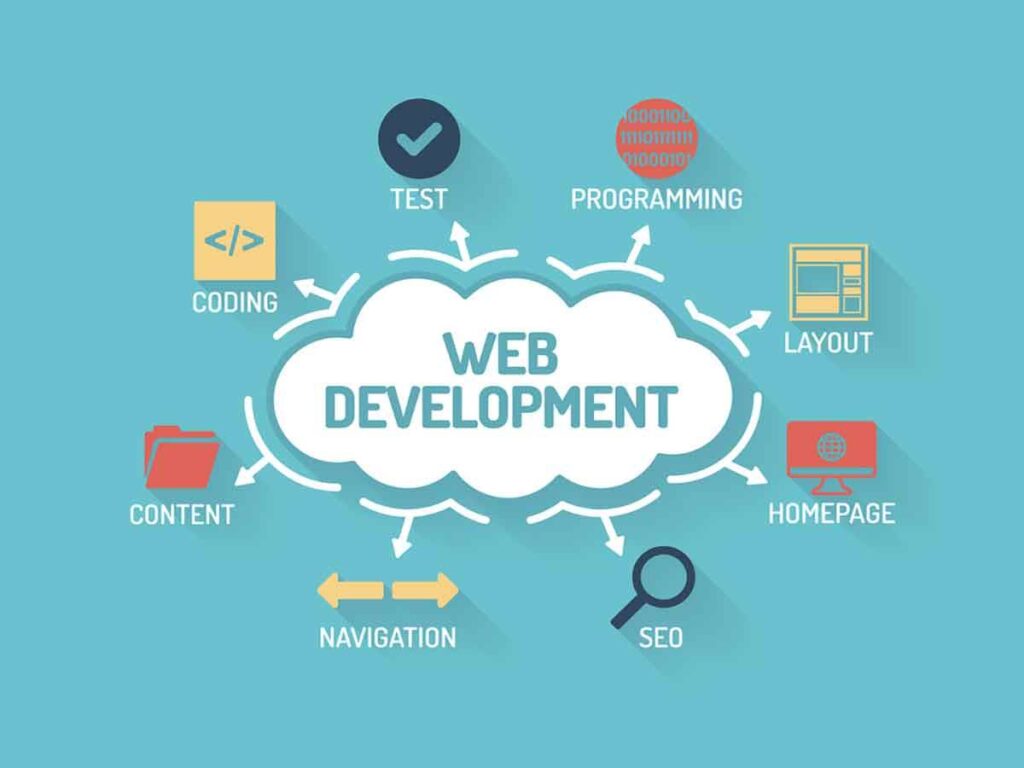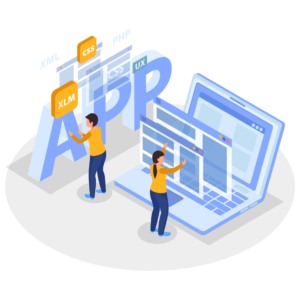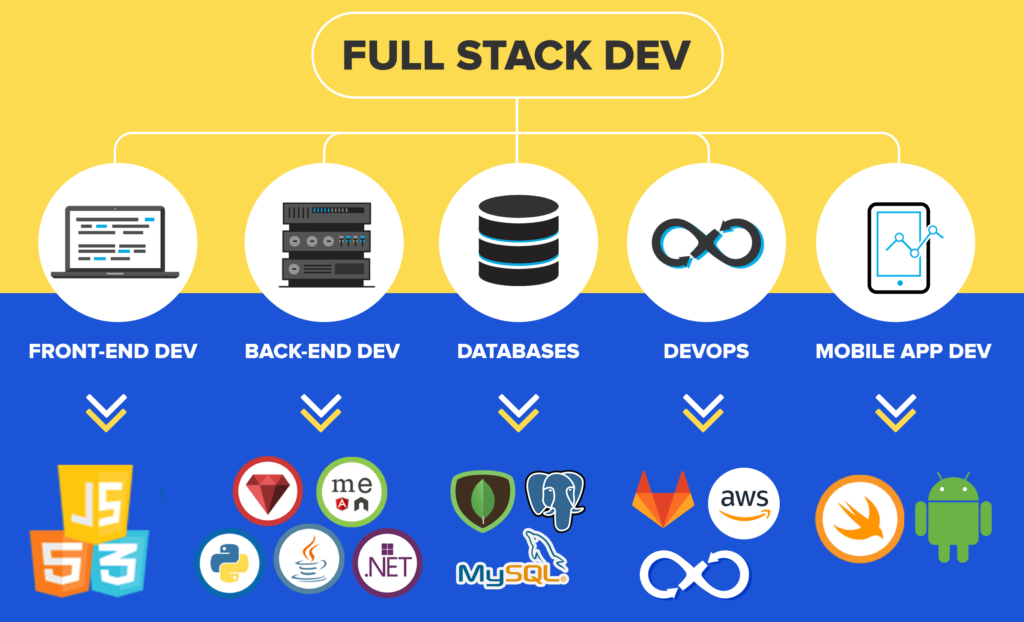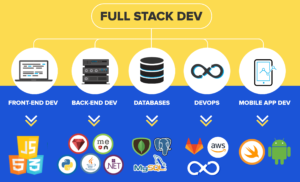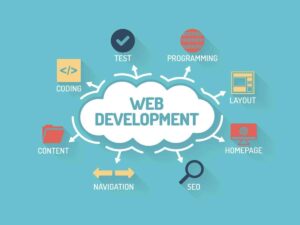The Need for Speed: 5 Key Benefits of a Fast-Loading Website
In the rapidly evolving digital landscape, where information is consumed at lightning speed, a slow-loading website can be a significant hurdle to user engagement and success. A fast website has become more than a mere luxury; it’s a fundamental necessity for any online presence. But what exactly is a fast website? In this blog post, we will delve into the elements that define a fast website and why speed matters more than ever.
What is a fast website?
A fast website is one that loads quickly and efficiently, providing a seamless and enjoyable user experience. While the exact load time that qualifies as “fast” can vary, industry standards and user expectations have set the bar high. Generally, a fast website loads in a matter of seconds, aiming for a load time of around 2 to 3 seconds or even faster. Let’s break down the key components that contribute to the speed of a website.
How to Test Your Website’s Speed
Testing your website’s speed is a crucial step in ensuring a seamless user experience and optimal performance. There are several tools and methods you can use to test your website’s speed. Here’s a step-by-step guide on how to do it:
Choose a Speed Testing Tool:
There are various online tools available for testing website speed. Some popular options include:
- Google PageSpeed Insights
- GTmetrix
- Pingdom Tools
- WebPageTest
- Enter Your Website URL:
- Visit the chosen speed testing tool’s website and enter your website’s URL in the provided field.
Run the Test: Click the “Test” or “Analyze” button to initiate the speed test. The tool will start analyzing your website’s performance.
Review the Results: Once the test is complete, you’ll be presented with a detailed report of your website’s performance. This report usually includes metrics such as:
- Page load time
- First Contentful Paint (FCP)
- Largest Contentful Paint (LCP)
- Time to Interactive (TTI)
- Total page size
- Number of requests

Analyze Suggestions and Recommendations: Most speed testing tools provide suggestions and recommendations for improving your website’s speed. These suggestions might include optimizing images, leveraging browser caching, minimizing redirects, and more.
Optimize Your Website:
Act on the recommendations provided by the speed testing tool. Common optimization steps include:
- Compressing and optimizing images
- Minimizing CSS and JavaScript files
- Enabling browser caching
- Using Content Delivery Networks (CDNs)
- Minimizing the use of external scripts and plugins
Retest Your Website: After implementing the suggested optimizations, run the speed test again to see how your website’s performance has improved. Regular testing and optimization are essential for maintaining a fast-loading website.
Consider Mobile Performance: Remember to test your website’s speed on both desktop and mobile devices. Many users access websites through mobile devices, so ensuring a fast mobile experience is crucial.
Monitor Performance Over Time: Website speed isn’t a one-time fix; it’s an ongoing process. Regularly monitor your website’s performance using speed testing tools and make adjustments as needed.
Use Built-In Browser Tools: Most modern web browsers also offer built-in developer tools that allow you to assess your website’s performance. The Network tab in these tools can provide insights into how various elements of your site load.
By following these steps and regularly testing and optimizing your website’s speed, you can ensure that your visitors have a positive experience and that your website ranks well in search engines. A fast-loading website is a crucial factor in retaining users, reducing bounce rates, and driving conversions.

Drawbacks of Slow Website
A slow website can have a significant negative impact on user experience, search engine rankings, and overall business success. Here are some drawbacks of having a slow website:
Poor User Experience: A slow website frustrates visitors and creates a negative user experience. Users expect quick access to information and content. If your website takes too long to load, users are more likely to abandon it and seek alternatives, resulting in high bounce rates.
High Bounce Rates: Bounce rate refers to the percentage of visitors who navigate away from your site after viewing only one page. Slow-loading websites often have high bounce rates, as users are impatient and unwilling to wait. High bounce rates can negatively impact your website’s search engine rankings and conversions.
Decreased User Engagement: Slow-loading websites discourage users from exploring multiple pages or interacting with your content. Slow page load times can lead to decreased engagement metrics, such as time spent on site and the number of pages viewed per visit.
Negative Impact on Conversions: Slow websites can hinder the conversion process. Whether you’re selling products, offering services, or collecting leads, users are less likely to complete actions on a site that takes too long to load. Studies have shown that even minor delays in page load times can lead to a significant drop in conversions.
Poor Search Engine Rankings: Search engines, particularly Google, consider website speed as a ranking factor. Slow-loading websites may be penalized in search engine rankings, leading to decreased visibility and organic traffic. This can have a detrimental impact on your website’s overall online presence. A slow website reflects poorly on your brand. Visitors might associate slow loading times with unprofessionalism, a lack of attention to detail, or outdated technology. A fast website, on the other hand, enhances your brand’s reputation and professionalism.
Mobile Discontent: Mobile users often have slower and less stable internet connections than desktop users. If your website doesn’t load quickly on mobile devices, you risk alienating a significant portion of your audience.
Competitive Disadvantage: In today’s competitive digital landscape, users have numerous alternatives to choose from. If your website is slow, users can easily switch to a competitor’s site that offers a faster and more seamless experience.

Reduced Revenue and Profit: Slow websites can directly impact your bottom line. E-commerce businesses, for instance, may experience a drop in sales due to frustrated users abandoning their shopping carts. Similarly, businesses reliant on ad revenue may suffer from decreased impressions and clicks.
Lack of Accessibility: Slow websites can be inaccessible to users with limited bandwidth or those in regions with poor internet connectivity. This reduces your website’s reach and potential audience.
Slow websites can lead to a cascade of negative consequences that affect the user experience, engagement, conversions, search engine rankings, and your brand’s reputation. Prioritizing Website speed is not only a technical consideration but a strategic one that directly impacts the success of your online presence.
5 critical Factors of a Fast Website
In the vast expanse of the digital world, where information is at our fingertips and decisions are made in mere seconds, the speed of your website can be a decisive factor in determining its success. A fast-loading website isn’t just a luxury; it’s an essential element of user satisfaction, search engine visibility, and overall business growth. In this comprehensive blog, we will delve deep into the five crucial benefits that a fast-loading website brings to the table and understand why prioritizing speed is not just an option, but a strategic necessity.
Enhanced User Experience: A Need for Instant Gratification
Imagine this scenario: you stumble upon a website that takes ages to load. What’s your natural reaction? Frustration, annoyance, and the temptation to abandon ship. That’s precisely why a fast-loading website is paramount. It provides visitors with a seamless and effortless experience, where they can access the desired information without waiting around. In a world where instant gratification is the norm, a website that loads quickly signals efficiency and reliability, paving the way for positive user interactions.
A fast-loading site means that images, text, and interactive elements appear instantaneously, minimizing the waiting time. This not only encourages users to explore more pages on your website but also reduces the likelihood of them hitting the dreaded “back” button.

Improved Search Engine Rankings: Speed as a Ranking Factor
When it comes to search engine rankings, speed is not just a luxury; it’s a criterion. Search engines, especially Google, are committed to delivering the best user experience. Consequently, they factor in website loading speed when determining search rankings. Google’s algorithms recognize that users prefer fast websites, and thus, websites that load quickly are rewarded with higher rankings.
Moreover, speed is even more critical in the context of mobile searches. With mobile devices accounting for a significant portion of web traffic, Google has shifted to mobile-first indexing, placing emphasis on the speed and responsiveness of mobile websites. A fast-loading mobile version of your website can significantly boost your search engine rankings and increase your online visibility.
Reduced Bounce Rates: Keeping Users Engaged
Bounce rates refer to the percentage of visitors who leave your website after viewing only one page. High bounce rates are often indicative of poor user experience, and one of the leading culprits for high bounce rates is slow-loading websites. Visitors are inherently impatient; they want information quickly, and if your website fails to deliver, they’re likely to bounce off to a competitor’s site.
A fast-loading website significantly reduces bounce rates. It ensures that visitors land on your website and find what they’re looking for without any unnecessary delays. This smooth experience encourages them to stay, explore further, and engage with your content. In contrast, slow-loading websites create frustration, prompting visitors to seek alternatives.

Increased Conversions and Revenue: The Speed-to-Success Connection
Speed and conversion rates share a close relationship. Research indicates that even a one-second delay in page load time can result in a significant drop in conversions whether you’re running an e-commerce store, a subscription-based service, or a content-driven platform, speed matters.
Consider an online shopper on your e-commerce website. If the site takes too long to load, the shopper might abandon their cart, frustrated by the wait. On the other hand, a swift and seamless checkout process results in more completed transactions, translating into increased revenue for your business. Thus, investing in a fast-loading website is, in essence, investing in your bottom line.
Mobile Friendliness and Accessibility: Catering to Every User
Mobile devices have become an integral part of our lives, and mobile users form a significant portion of online traffic. A fast-loading website is not just about desktop performance; it’s about catering to the mobile audience as well. Many mobile users might be accessing your website on slower internet connections, and a fast-loading site ensures that they have a satisfactory experience.
Moreover, Google’s mobile-first indexing places a premium on mobile website performance. If your website loads quickly and provides a seamless mobile experience, it’s more likely to rank higher in mobile search results, expanding your reach to the mobile audience.
Speed as a Strategic Advantage
In the realm of the digital landscape, where every second counts, the need for a fast-loading website cannot be overstated. The benefits are abundant and far-reaching: from an enhanced user experience and improved search engine rankings to reduced bounce rates, increased conversions, and mobile accessibility. Speed isn’t just a technical aspect; it’s a strategic advantage that can set your website apart from the competition.
Investing in website speed is investing in user satisfaction, engagement, and ultimately, the growth of your business. So, if you’re serious about delivering a superior online experience, it’s time to put the pedal to the metal and optimize your website for speed. After all, in the digital world, where time is of the essence, speed is your ticket to success.

How can we help you?
Revinr IT Ltd offers a range of services and strategies to help increase your website speed, enhancing user experience and overall website performance. Here’s how Revinr IT Ltd can assist you in improving your website speed:
Website Performance Audit: Revinr IT’s experts can conduct a thorough audit of your website’s performance. They analyze various elements that impact speed, including code structure, image optimization, server configuration, and more.
Image Optimization: Images often contribute to slow website loading times. Revinr IT can optimize images by compressing them without compromising quality, specifying dimensions, and implementing lazy loading techniques.
Code Optimization: Clean and efficient code is crucial for a fast-loading website. Revinr IT’s developers can review and optimize your website’s code, removing unnecessary elements and reducing file sizes.
Minification and Concatenation: Revinr IT can minify CSS and JavaScript files by removing unnecessary characters and spaces. They can also concatenate multiple files into one, reducing the number of HTTP requests made by the browser. Revinr IT can implement browser caching, enabling repeat visitors to load your site faster by storing certain assets locally on their devices.
Content Delivery Network (CDN) Integration: Revinr IT can integrate your website with a CDN, distributing content across multiple servers globally. This reduces the physical distance between the user and the server, resulting in faster load times.
Server Performance Optimization: Revinr IT’s experts can optimize your server’s configuration, including enabling GZIP compression, reducing server response time, and ensuring adequate resources for optimal performance.
Reducing Redirects and Requests: Revinr IT can help minimize unnecessary redirects and external requests, ensuring that users can access your content without unnecessary delays. The Need for Speed: 5 Key Benefits of a Fast-Loading Website
Responsive Design: Revinr IT can ensure that your website is optimized for mobile devices, catering to users accessing your site on smartphones and tablets.
Regular Monitoring and Maintenance:
Speed optimization is an ongoing process. Revinr IT can set up tools to continuously monitor your website’s performance and promptly address any emerging speed-related issues.
Revinr IT provides technical support to address any concerns related to website speed. Whether it’s troubleshooting slowdowns or implementing updates, their team is available to assist.
In essence, Revinr IT Ltd can provide a comprehensive approach to optimizing your website speed, taking into account various technical aspects and best practices. Their expertise can help you achieve a faster, more responsive website that enhances user experience, improves search engine rankings, and contributes to the overall success of your online presence.










